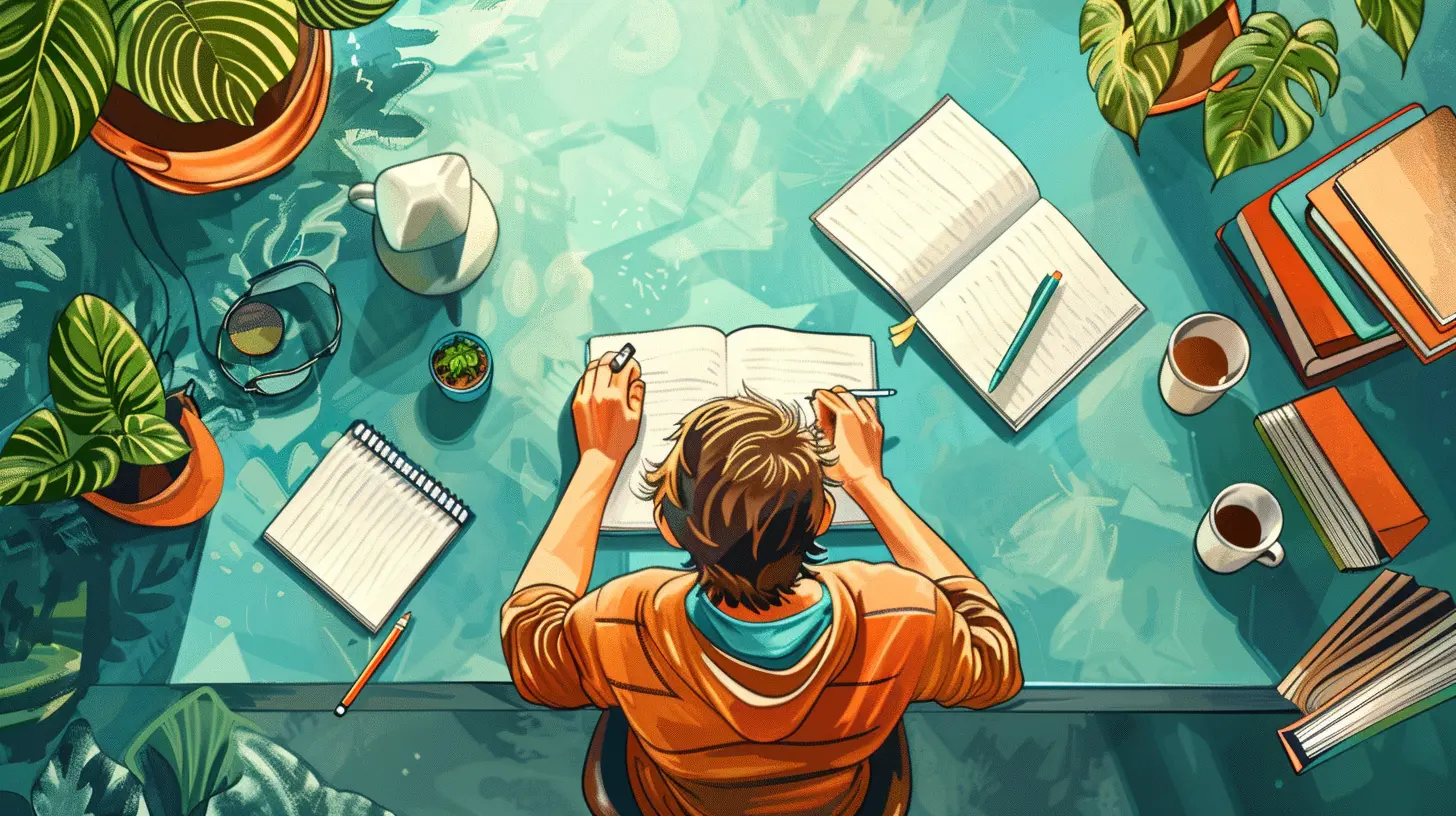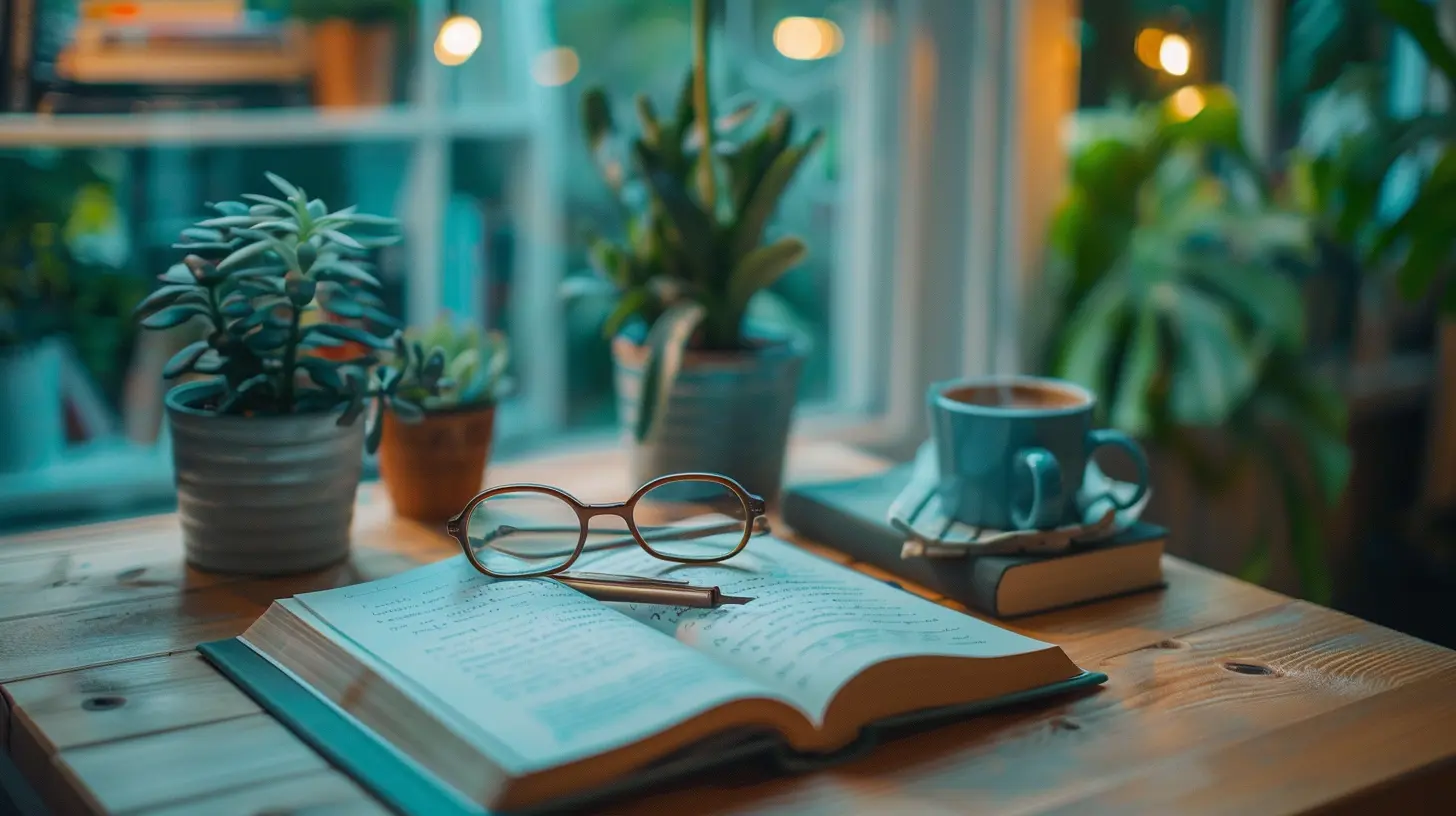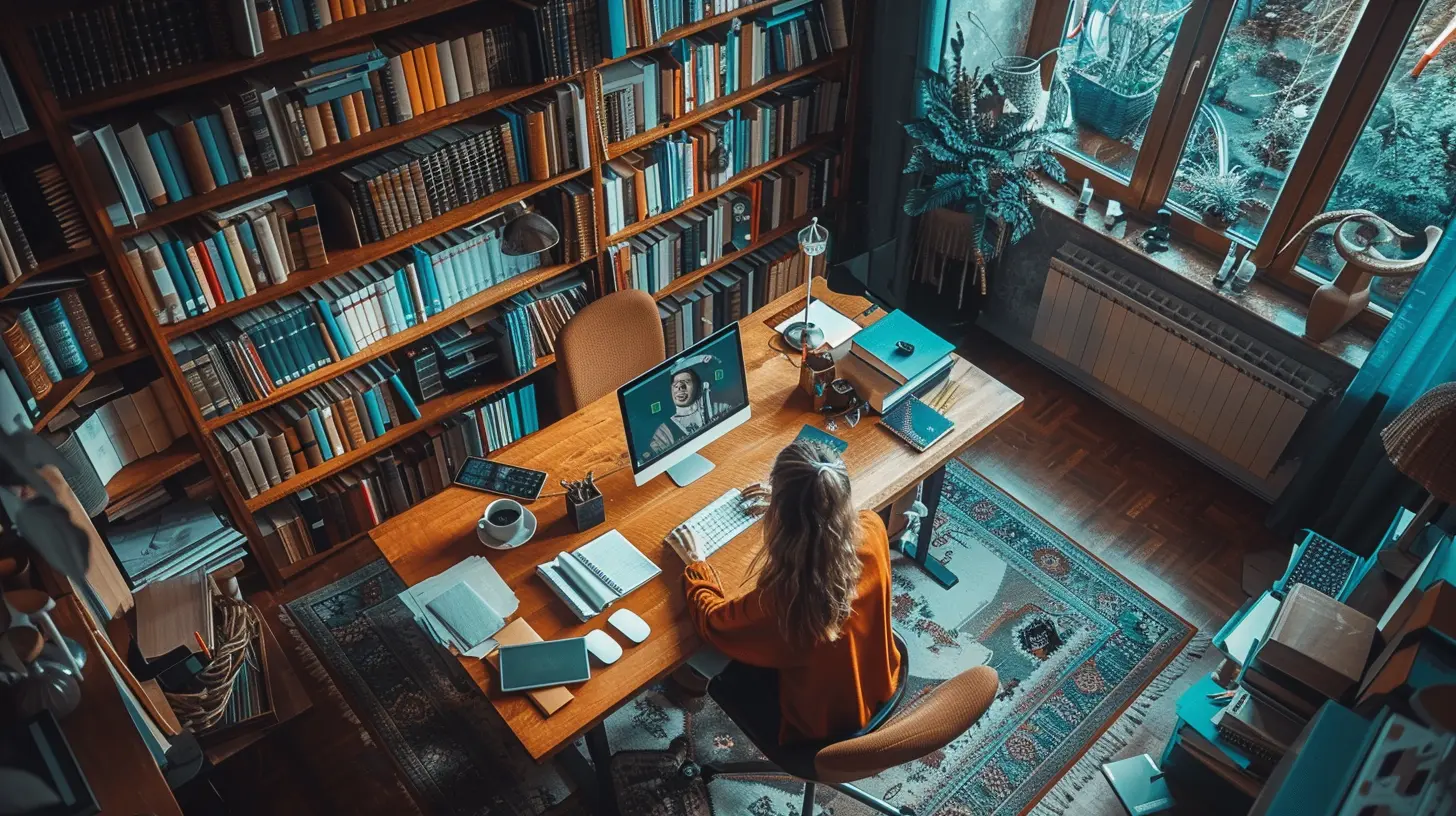How to Create a Productive Study Environment
25 October 2025
Studying can be tough, especially when distractions seem to be everywhere. Have you ever sat down to study, only to find yourself scrolling through your phone or staring blankly at your notes? You’re not alone! A productive study environment can make all the difference in how well you absorb and retain information.
But how do you create the perfect study space? It’s not just about having a desk and a chair—it’s about setting up an environment that helps you focus, stay motivated, and get work done efficiently. In this article, we'll dive into practical strategies to design the ideal study space that keeps distractions at bay and boosts your productivity. 
1. Choose the Right Location
Where you study matters more than you think. Some people need absolute silence, while others thrive with a little background noise. The key is to find a space that minimizes distractions and allows you to concentrate.Factors to Consider When Choosing Your Study Spot:
- Quietness – A peaceful environment helps you focus better. If you live in a noisy household, consider noise-canceling headphones.- Comfort – Your study space should be comfortable but not too comfortable. Studying in bed? Bad idea—you may end up napping instead.
- Good Lighting – Natural light is ideal, but if that’s not an option, invest in a bright, non-glaring lamp to prevent eye strain.
- Accessibility – Choose a place where you won’t be interrupted often. If possible, let others know that you need focused study time.
Best Spots for Studying:
- A quiet corner in your home- A library
- A coffee shop (if background noise helps you focus)
- A dedicated study room

2. Declutter Your Study Space
A cluttered desk equals a cluttered mind. If your study area is messy, it can be hard to concentrate. Keeping your space organized will help reduce distractions and improve productivity.How to Declutter Effectively:
- Keep only what you need – Remove unnecessary books, papers, or gadgets that don’t contribute to your study session.- Use organizers – Desk organizers, shelves, and storage boxes can keep things neat.
- Go digital – If possible, store notes digitally to reduce paper clutter.
A clean, organized space makes it easier to focus on your tasks rather than hunting for misplaced notes or supplies. 
3. Get the Right Equipment
Having the right tools can make studying much more efficient. Imagine trying to write notes without a proper pen or struggling to read in dim light—it’s frustrating!Essentials for a Productive Study Setup:
- A Comfortable Chair & Desk – Your posture matters. Choose a chair that supports your back and a desk that provides enough space.- Good Lighting – As mentioned earlier, proper lighting prevents eye strain and keeps you alert.
- Noise Control – Use noise-canceling headphones or play soft instrumental music if absolute silence isn’t an option.
- A Reliable Computer & Internet – If you study online, ensure your gadgets are up to speed and your internet connection is stable.

4. Minimize Distractions
Distractions are the number one enemy of productivity. One minute you’re studying, and the next, you’re deep into social media or binge-watching videos. Sound familiar?Tips to Stay Focused:
- Turn Off Notifications – Social media and text messages can wait. Put your phone on silent or use apps like “Forest” to stay off distractions.- Use a Timer – The Pomodoro technique (25 minutes of focus, 5-minute break) works wonders. It keeps your brain engaged while preventing burnout.
- Block Distracting Websites – If you tend to wander online, use website blockers to keep yourself on track.
- Tell People You’re Studying – If you live with others, let them know about your study schedule to avoid interruptions.
This may take some discipline, but once you build the habit, focusing becomes much easier.
5. Organize Your Study Materials
Ever spend 10 minutes just looking for a particular notebook? That wasted time adds up! Keeping your materials organized saves time and makes studying more efficient.How to Stay Organized:
- Use Binders & Notebooks – Label them by subject to find things quickly.- Color-Code Notes – Highlight key points with different colors to improve recall.
- Use Digital Tools – Apps like Notion, Evernote, or Google Drive can help organize study materials.
- Create a Study Plan – Plan what you’ll study each day to avoid last-minute cramming.
When everything is structured, you’ll spend more time learning and less time searching for misplaced notes.
6. Make It Comfortable and Motivating
A study space should inspire you to be productive. If it feels dull and boring, you’re less likely to enjoy the process.Ways to Make Your Study Space More Inviting:
- Personal Touches – Add plants, motivational quotes, or a vision board.- Comfortable Temperature – Too hot or too cold? Adjust the temperature to a comfortable level.
- Stay Hydrated & Have Healthy Snacks – Keep a water bottle nearby and opt for brain-boosting snacks like nuts and fruits.
Creating an enjoyable study environment makes it easier to sit down and get things done!
7. Develop a Study Routine
A productive study environment isn’t just about the space—it’s also about having structure. A study routine helps condition your brain to focus when it’s time to study.How to Build a Study Routine:
- Set a Schedule – Whether it’s morning, afternoon, or evening, pick a time when you’re most alert.- Start with a Warm-Up – Spend a few minutes reviewing previous materials before diving into new content.
- Stick to the Plan – Consistency is key. The more you stick to your routine, the easier it becomes.
- Take Breaks – Your brain needs time to absorb information, so don’t forget to take short breaks.
A well-planned routine eliminates procrastination and makes studying a habit rather than a chore.
8. Use Productivity Tools
Sometimes, a little external help can go a long way. Productivity tools can keep you on track and help improve your study efficiency.Helpful Study Apps & Tools:
- Forest – Keeps you off your phone by growing a virtual tree as you focus.- Notion/Evernote – Digital note-taking apps to organize your study materials.
- Quizlet – Create and review flashcards for better memorization.
- Google Calendar – Schedule your study sessions and reminders.
Using these tools can make your study sessions smoother and more efficient.
9. Get Enough Rest
Believe it or not, rest is just as important as studying. Pulling all-nighters might seem like a good idea, but in reality, sleep deprivation weakens memory and concentration.Why Sleep is Crucial for Studying:
- It helps retain information.- It improves focus and cognitive function.
- It prevents burnout.
Aim for 7-9 hours of sleep each night to keep your brain in top shape. A well-rested mind is a productive mind!
Final Thoughts
Creating a productive study environment isn't about having the perfect desk or the quietest space—it’s about finding what works best for you. Whether it’s decluttering your study area, minimizing distractions, or sticking to a routine, small changes can lead to major improvements in focus and efficiency.Now it’s your turn! Try implementing some of these strategies and see how they transform your study sessions. Remember, a good study environment isn’t just about physical space—it’s about creating the right mindset, too.
So, set up your study spot, grab your notes, and make the most out of your study time!
all images in this post were generated using AI tools
Category:
Student SuccessAuthor:

Bethany Hudson
Discussion
rate this article
1 comments
Ivan Clark
This article offers valuable insights into crafting an effective study environment. Simple adjustments like minimizing distractions and organizing your space can drastically enhance focus and productivity. A must-read for all students!
November 13, 2025 at 4:14 AM

Bethany Hudson
Thank you for your thoughtful comment! I’m glad you found the insights valuable and relatable. Creating a productive study environment is essential for success!


